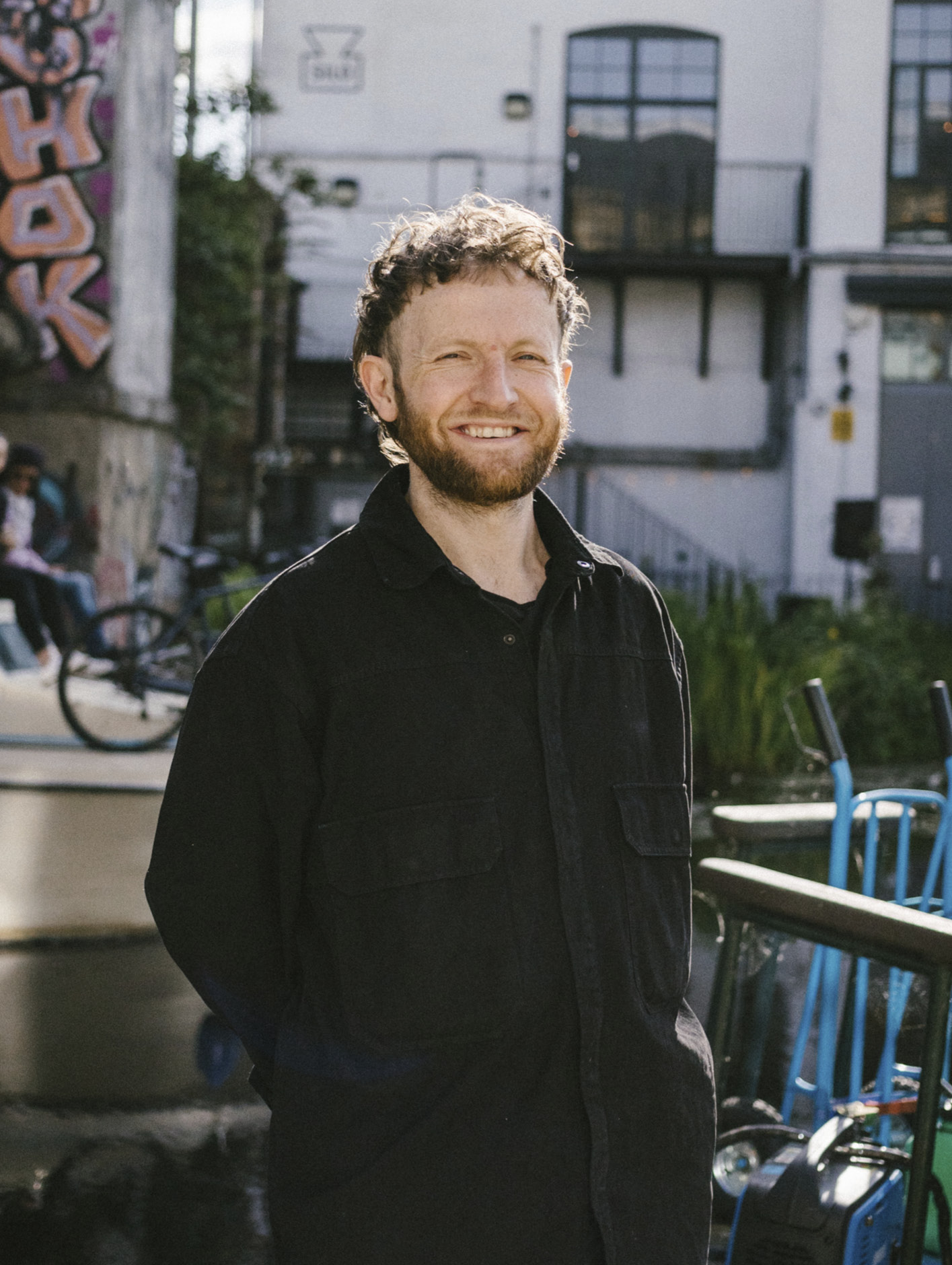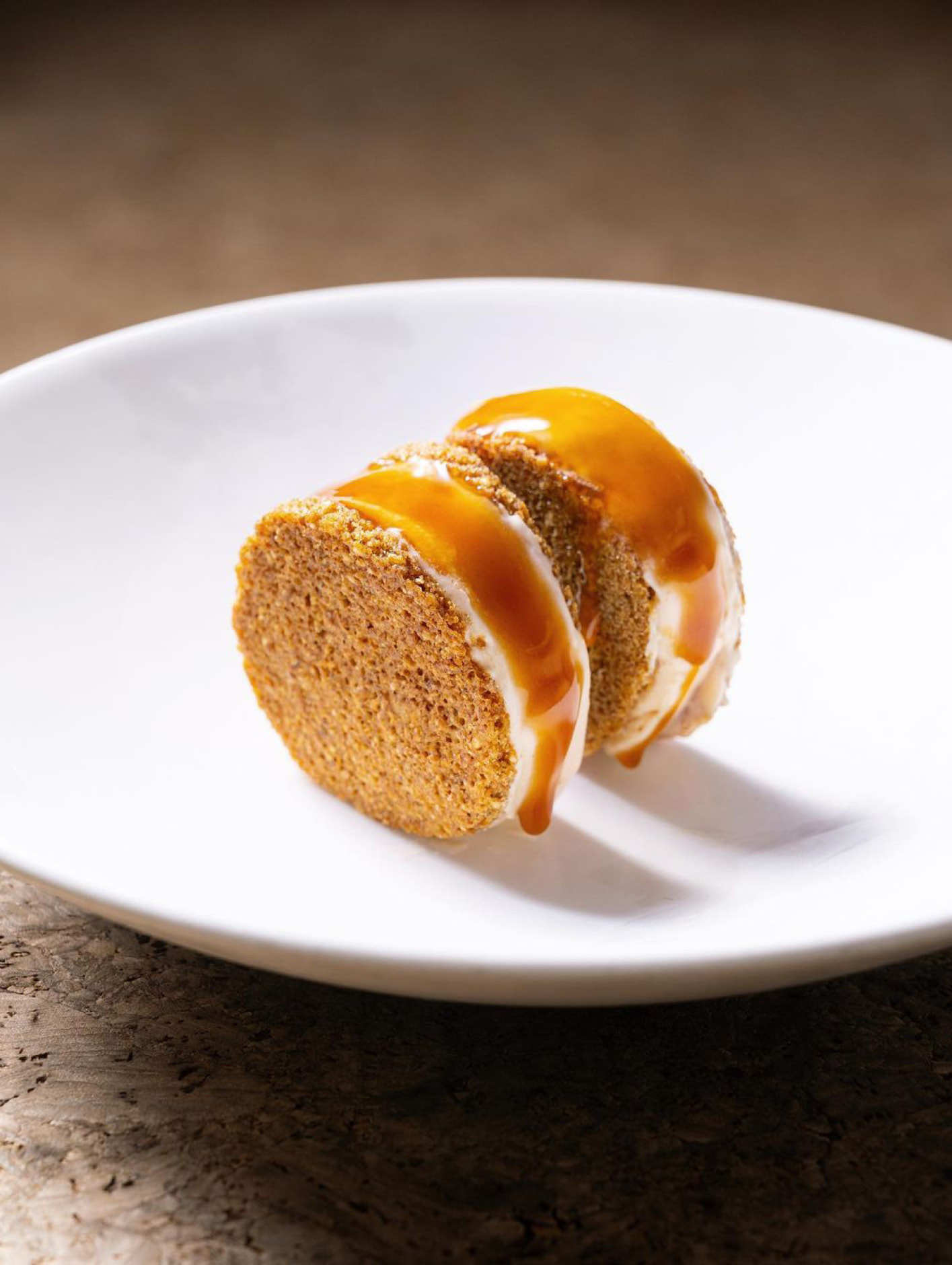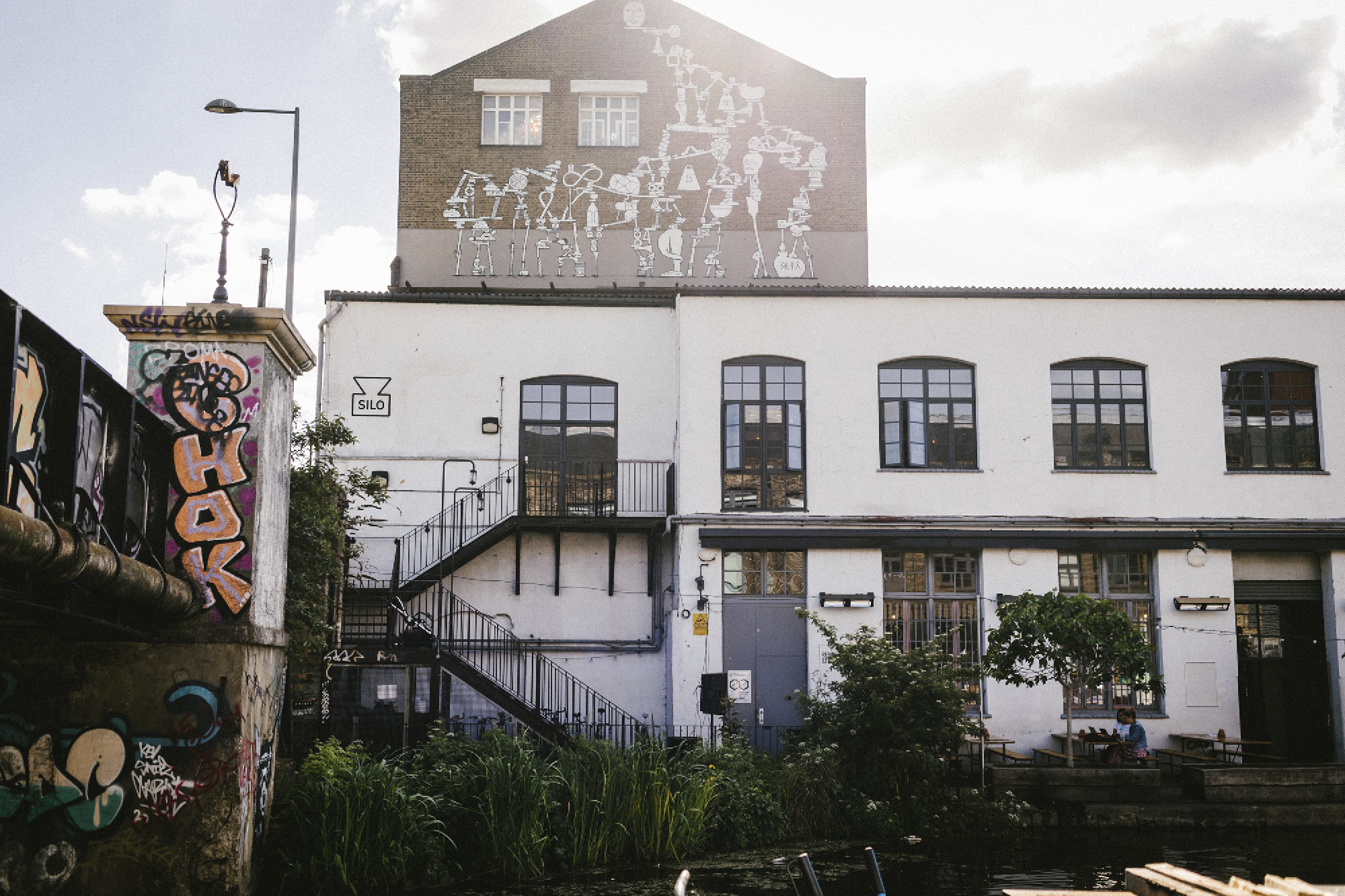WORDS
Imogen Almond
Beside the banks of the River Lea is an unsuspecting white building, right on the water. Step inside and you’ll find large open wood-fires and a rustic minimalist décor – and will quickly realise that this is somewhere special. This is because Unit 7 Queen’s Yard is home to the world’s first zero-waste restaurant, Silo.
The founder and head chef of Silo, Douglas McMaster, spent time talking to Brummell about this bold and brave venture, and what we can expect from his restaurant:
What can diners expect from Silo?
There’s a minimalism and elegance to what we do at Silo. Through our menu we are trying to say that nature is precious. Working with the best produce from regenerative farming, the food you eat comes from the nutrient-dense soil to your plate within a 48-hour window. As well as nature, we also understand that food is precious. We are so passionate about what we do and how we work with our food. Ultimately, we want to represent that within our gastronomy.
Silo has a zero-waste policy. How does this affect the way you prep and cook a menu for guests to enjoy?
Fire and fermentation. The food is all cooked on a fire using regenerative wood from woodlands and stockists from nature reserves. There is also a semblance of fermentation across the whole menu at Silo. This is because fermentation is the ultimate way in which we can close the loop on our ingredients. Restaurants tend to throw away a huge percentage of what they buy. At Silo, we compost around 1 per cent of what we don’t use and the 99 per cent goes on the plate. Fermentation is able to capture all types of ingredients and has no problem in capturing all the flavour.

Do you struggle to find farmers and suppliers who have the same belief system as you?
Every year it gets easier. Each year more people are coming round to the holistic nature of the environment. Gone are the days of the industrial mentality and monoculture. People are beginning to realise that if we farm industrially, it might be profitable for the next 10 to 20 years, but it will inevitably cost a lot more in the long run. There’s lots of benefits to regenerative farming. One being it’s far more economically salient, but also once we understand what nature wants it will keep on delivering again and again, long into the future.
Did you ever doubt your abilities to make zero waste at Silo possible? If so, how did you overcome this?
Achieving zero waste is hard. It’s always been hard and it will continue to be hard. I’m always quite cautious to say that because I don’t want people to abstain from this future, but I do believe that it is the struggle that bears the sweetest fruits. Over the nine years I’ve run Silo, it seems that the people, the culture, and the food are all so special because of this struggle. If we had it easy, I have no idea where we would be today, but it would be no way near as special.
Is there a dish at Silo that you are most proud of?
Yes, there is one that I think is very special conceptually. I’m hesitant to mention it as, for foodies, it’s not overly exciting and it has a slightly hedonistic existence, but it is a crowd favourite. It is the salted caramel ice cream sandwich. The reason I think it is so special conceptually is because it’s made from all the surplus of our bread and butter. By churning the butter it produces buttermilk. With that we are able to make dulce de leche, and from that we make the ice cream. When we mill flour for our bread, we produce a lot of bran. From this bran we are able to make the ice cream sandwich biscuit wafer. Then, for lack of a better term, we make a Marmite syrup to accompany. It is produced from waste bread that is soaked in water and fermented. We then reduce the stock that has been produced and turn it into syrup. Conceptually, it’s very poetic; the surplus from the first course is what makes up the last course.

How do you come up with such a unique menu?
My dad was an artist, so naturally I’ve spent my whole life surrounded by creativity. I myself am a creative. I am in a constant state of learning, and through this learning I begin to see things differently. At Silo we essentially work from circumstance to circumstance, leading us to question “what do we do now?”. We have to react positively to the overwhelming amount of surplus and think “what does it want to become?” and how we can integrate it into the menu.
What do you wish people knew more about sustainability in the food industry?
I think it’s important to remember that sustainability isn’t just about carbon. I understand that sequestering and storing carbon is the biggest challenge of the decade, but at the end of the day science isn’t holistic. There is no denying that science is amazing, but it doesn’t see the interconnectivity of nature and that’s where I think it is leading us slightly astray. To understand sustainability, you have to understand that it is all about balance. Regenerative farms understand this. They know that they must feed the soil in order for it to keep feeding oats. It’s a shame because huge corporations are making decisions with a lack of wisdom. Wisdom is fundamentally understanding what nature is, what sustainability is, and how we can sustain ourselves on this planet.
How can the average person actively bring sustainability into their kitchen on a daily basis?
Go to the supermarket less and less. Supermarkets are a major problem because they are predicated on these mono-industrial agricultural systems. When we shop there, we are basically investing in the degradation of nature. But inevitably you will have to go to the supermarket. When you go, don’t buy things wrapped in plastic. I know this is a tall order because most of it is, but it will help if you head to the edges of the supermarket where there is a butcher or a fishmonger selling loose produce.
An alternative option is going to farmers’ markets. By slowly, incrementally introducing this into your lifestyle it will mitigate a degree of damage every time. If everyone was to add this into their routine, it would have a massive positive change.

Who is your role model and how have they influenced you in your work?
I have a few role models. One is Zach Bush. He is both a friend and a role model from across the internet. He helped me understand how human bodies are regenerative ecosystems and are part of what nature is. Another is Joost Bakker. Joost is the vision behind zero waste and challenged me to start my journey.
What do you think of the London restaurant scene?
I love it. The quality of food in London is top of the world. I think diversity is an important part of the equation and London has that in spades. Of course, we need a lot more consciousness of sustainability in the future. Naturally people are scared and overwhelmed by the “s” word, because it is a very new and challenging thing to consider. However, despite this, I still believe that London is one of the best cities in the world for food. It’s a great community.
What single ingredient can you not live without and why?
The cooking process I couldn’t live without is fermentation. The flavour I couldn’t live without is Mexican marigold. But the food I couldn’t live without would be wild food, specifically nettles. They’re nutritious, delicious, underrated, abundant and misunderstood.
Silo, Unit 7 Queen’s Yard, London E9 5EN; silolondon.com





